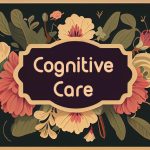Cognitive Care or Memory Care?
Should we label a unit or area Cognitive Care or Memory Care? “Cognitive Care” may be a better term than “Memory Care” and we’ll give you some reasons why. First of all, dementia is not primarily a memory condition. While memory loss is often the most visible early symptom, dementia affects multiple cognitive functions, including: attention judgment problem-solving language…













